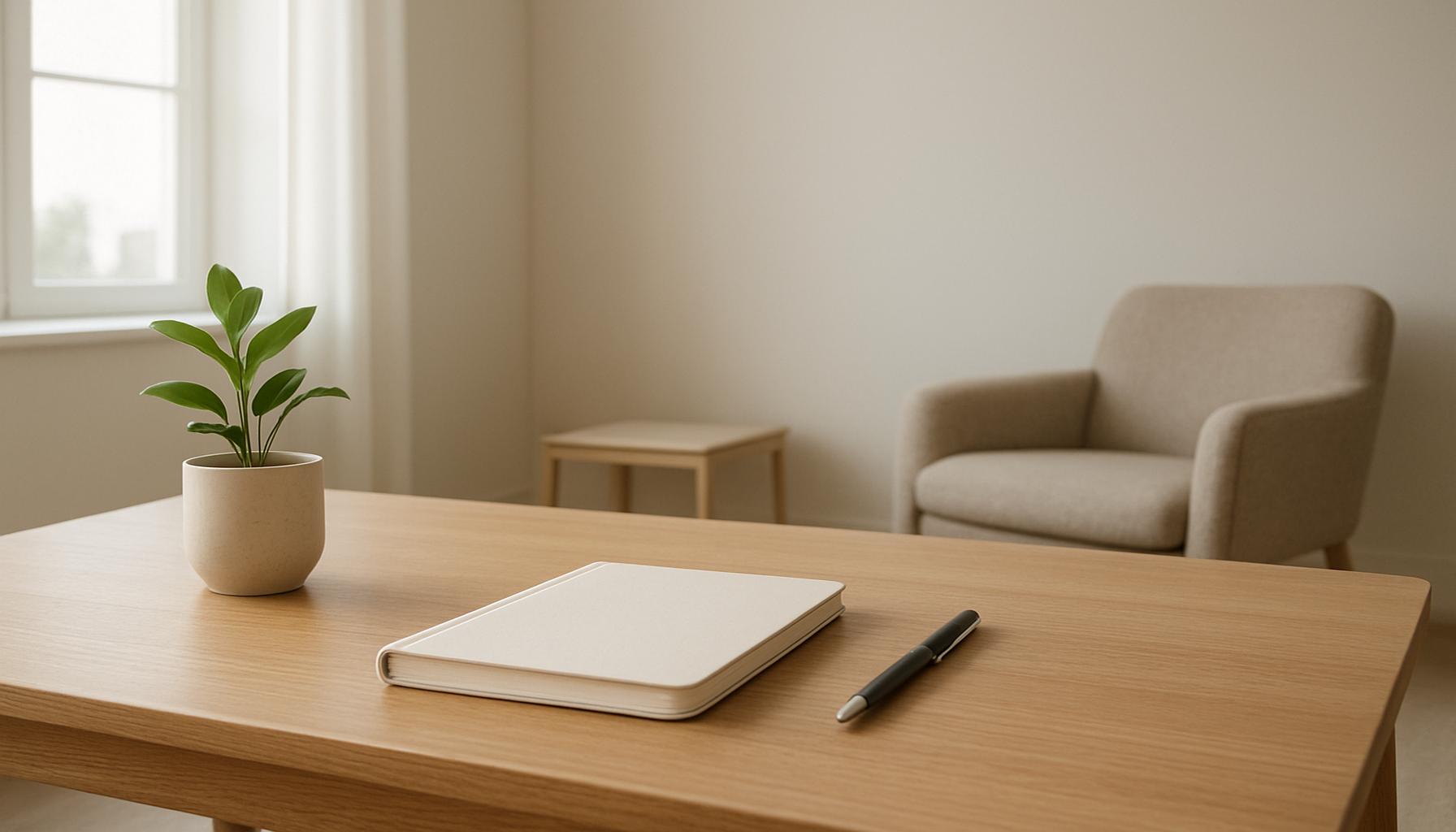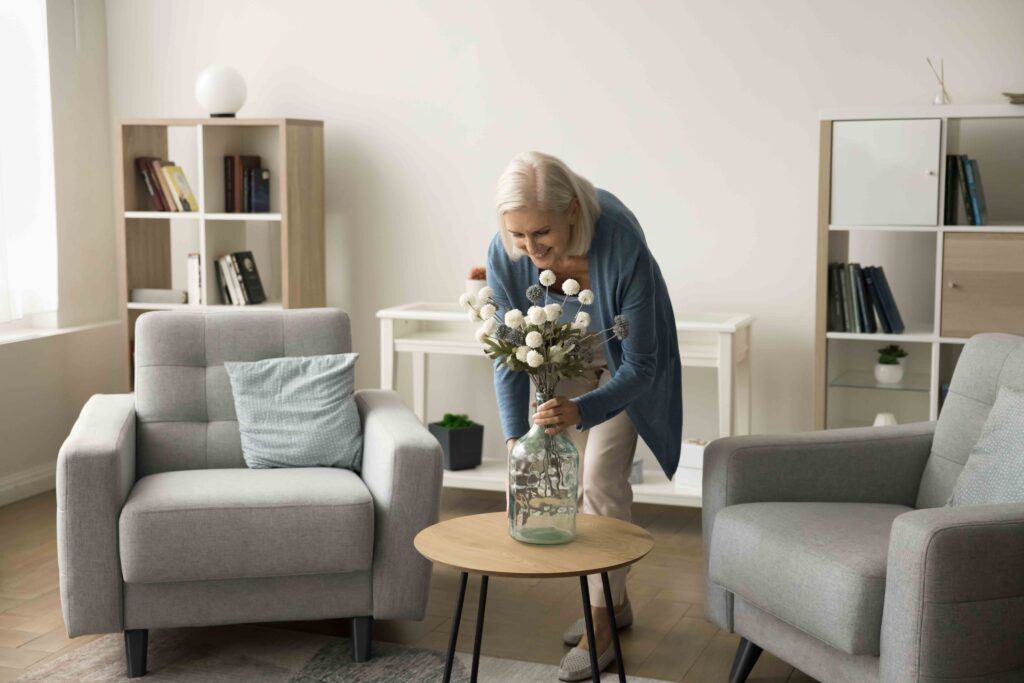Simplifying Life: How Minimalism Can Improve Your Personal Organization

The Transformative Power of Minimalism
In an era where consumerism reigns and multitasking is the norm, embracing minimalism can serve as a profound remedy to the chaos that infiltrates our daily lives. The minimalist lifestyle invites you to focus not just on the absence of belongings but on the richness that intentional living brings. Imagine living in a space that feels serene and open, where every item you own has been thoughtfully considered for its value and purpose. By adopting a minimalist approach, one can realize significant benefits that extend beyond just decluttering.
Enhanced Focus on Priorities
With fewer distractions surrounding you, the ability to hone in on what truly matters becomes markedly easier. For instance, individuals working from home can benefit immensely from a minimalist workspace—free of unnecessary papers and trinkets, thus allowing them to concentrate fully on their tasks. A study by the University of California found that individuals working in cluttered environments are less productive and more prone to distractions. When you curate your environment, you set the stage for creativity and focus, leading to better outcomes in both personal and professional realms.
Reducing Stress Through Decluttering
Our surroundings can significantly impact our mental well-being. A cluttered home can lead to feelings of anxiety and overwhelm; this is where minimalism shines. By systematically removing items that no longer serve a purpose, you open the door to a more calming living space. The act of decluttering can itself be therapeutic, akin to a form of self-care. According to psychologist Helen G. Langone, physical spaces reflect our mental states. Thus, simplifying your environment often leads to a more peaceful mind, fostering a sense of tranquility that can enhance overall quality of life.
Boosting Productivity and Efficiency
When your environment is streamlined, your ability to execute daily tasks tends to improve. Imagine a kitchen without excess gadgets; meal preparation becomes faster and more enjoyable. A study by the American Psychological Association supports this, indicating that organized environments result in heightened efficiency. Whether it’s managing work projects or household chores, minimalism allows for quicker access to essentials, paving the way for increased productivity.
Reflection and Intention
As you journey into minimalism, you’ll find yourself asking pivotal questions about your relationship with your possessions. What items add genuine value to your life? How can you create a more functional and inviting space tailored to your needs? What are your true priorities? By grappling with these profound inquiries, you enhance not just your organizational skills but also the way you perceive your time and resources.

In conclusion, minimalism is about more than simply owning fewer things; it is a lifestyle choice that promotes clarity, serenity, and intentionality. By embarking on this journey, you may discover a newfound appreciation for life’s simple pleasures as you increasingly value quality over quantity. As you explore the principles of minimalism, you’ll find it to be a powerful tool for organizing both your living space and your mind.
Transforming Your Environment for Greater Clarity
Embracing minimalism means recognizing that our environments deeply influence our habits and emotions. By simplifying your surroundings, you can craft a personal organization strategy that alleviates stress and enhances your ability to focus. A minimalistic approach challenges the common belief that more possessions equate to more comfort. Instead, it advocates for quality over quantity, prompting us to ask ourselves: does this item truly serve a purpose in my life?
The Pareto Principle: Applying the 80/20 Rule
One way to approach minimalism in personal organization is to apply the Pareto Principle, commonly known as the 80/20 rule. This principle suggests that 80% of your outcomes come from 20% of your efforts or resources. In terms of belongings, it can mean that 80% of your time is spent using only 20% of your possessions. To facilitate a more streamlined and efficient lifestyle, consider the following:
- Identify the 20% of items that bring you the most joy or utility.
- Evaluate the remaining 80% and determine what can be donated, sold, or discarded.
- Maintain a cycle of regular assessment, ensuring that new belongings fit into the curated 20%.
By recognizing the distinction between essential items and excess, you pave the way for a more organized and less stressful existence. The decluttering process itself can encourage mindfulness, prompting you to take inventory of what really matters.
Creating a Functional Space
Whether you’re living in a cozy apartment in New York City or a suburban home in Texas, your space should reflect functionality tailored to your lifestyle. A minimalist environment should promote not just aesthetics but practical organization. Consider these practical steps to create a space that works for you:
- Designate specific areas for various activities, such as a reading nook or a dedicated workspace.
- Utilize storage solutions effectively. Invest in quality furniture that doubles as storage, like ottomans or coffee tables with hidden compartments.
- Optimize your vertical space by using wall-mounted shelves, freeing up floors and countertops.
The overarching aim is to eliminate inefficiencies stemming from a cluttered space. By establishing a clear structure in your home, you can elevate your organizational abilities, allowing you to reclaim precious time and energy.
Minimalism as a Sustainable Lifestyle
Not only does minimalism promote personal organization, but it also encourages sustainable living. By choosing to own fewer, higher-quality items, you’re less likely to contribute to the fast-fashion industry and wasteful consumption patterns. This conscious decision-making influences how you manage your time, finances, and environmental impact. It invites you to rethink not just physical possessions but also how you allocate your resources and energy. The minimalist mindset prioritizes a more thoughtful and intentional life, making organization a natural outcome of a simplified existence.
| Category | Key Features |
|---|---|
| Time Management | Minimalism allows individuals to prioritize important tasks by eliminating distractions. |
| Clarity in Goals | By focusing on fewer objectives, minimalism enhances goal clarity, driving motivation. |
| Decluttering | A minimalist approach encourages elimination of unnecessary items, making organization simpler. |
| Mental Clarity | Reduction of clutter promotes mental well-being, which can enhance decision-making skills. |
Embracing minimalism doesn’t just affect physical spaces; it transforms how we organize our lives. With a focus on essential elements, individuals can harness better time management skills. By cutting out the noise, they become adept at prioritizing tasks that matter the most. Additionally, clarity in goals becomes a significant benefit, as concentrating on fewer objectives fuels motivation and reduces procrastination.The process of decluttering allows individuals to streamline their belongings, making it easier to maintain organization in both personal and professional settings. More importantly, this approach leads to improved mental clarity. A tidy environment contributes to a serene mind, which in turn enhances decision-making capabilities. In a world filled with distractions, minimalism offers an appealing solution to regain focus and simplicity.
Mindfulness and Minimalism: Cultivating Presence in Personal Organization
The journey towards minimalism is not solely about physical reduction but also about cultivating a mindful approach to life. By fostering a sense of presence, you can significantly enhance your personal organization. Mindfulness encourages you to engage fully with your tasks and surroundings, resulting in improved efficiency and reducing mental clutter. Combining minimalism with mindfulness can transform the way you manage daily responsibilities.
Practicing Mindful Decision-Making
Every item you acquire or decision you make can contribute to either clutter or organization. Embracing mindfulness while sorting through your belongings can make these choices more deliberate. Here are strategies to integrate mindfulness into your decision-making process:
- Pause before acquiring new items: Before purchasing an item, ask yourself if it supports your values or improves your quality of life.
- Limit distractions: When decluttering or organizing, eliminate distractions like smartphones or televisions to help maintain focus on the task at hand.
- Engage your senses: As you handle each item, take a moment to reflect on how it makes you feel, which can help highlight its importance—or lack thereof—in your life.
This mindful approach not only aids in making more informed decisions but also promotes a deeper connection with your belongings, allowing you to appreciate what you own.
Establishing Routines for Streamlined Organization
Another facet of minimalism that can enhance personal organization is the establishment of routines. Consistent habits allow for a simplified lifestyle, making it easier to maintain order in your home and daily activities. Consider incorporating the following practices into your routine:
- Daily five-minute declutter: Set aside just five minutes each day to tidy up a specific area, preventing clutter from accumulating.
- Weekly review: Dedicate time each week to assess your environment and reorganize or discard items that no longer serve a purpose.
- Plan your week: Utilize a minimalist planner or digital calendar to visualize your week at a glance, ensuring tasks are manageable and organized.
These simple, consistent practices help to reinforce your commitment to minimalism while creating an organized and peaceful space where you can thrive.
The Digital Declutter: Organizing Your Online Life
In today’s digital age, minimalism extends beyond the physical realm into our online lives. Cluttered digital spaces can be just as overwhelming as physical ones, leading to distraction and anxiety. To promote organization in your digital environment:
- Organize your files: Implement a system for categorizing documents and media on your devices, like using folders and subfolders for easy access.
- Unsubscribe from excess: Regularly review subscriptions and newsletters, choosing to only keep those that add value to your life.
- Limit your social media: Consider which platforms genuinely enhance your life and streamline your use by deleting accounts that no longer serve you.
By applying minimalist principles to your digital organization, you can reduce cognitive load and foster a more productive state of mind.
Conclusion: Embracing Minimalism for Enhanced Organization
In a world increasingly cluttered with distractions and excess, embracing minimalism offers a refreshing pathway to personal organization that resonates with simplicity and efficiency. By focusing on what truly matters, you create a foundation for a life that values mindfulness and intentionality. As explored throughout this article, minimalism is not just about removing physical clutter—it’s about fostering a mindset that enhances your emotional and mental well-being.
Implementing strategies such as mindful decision-making and establishing consistent routines can significantly improve your organizational skills. The practice of regularly assessing both physical and digital spaces enables you to maintain a serene environment, free from unnecessary stress and distractions. Furthermore, embracing a digital declutter is essential in today’s technology-driven world, where virtual chaos can mirror physical disarray, impacting productivity and focus.
Ultimately, minimalism invites you to take a step back, reflect on your life’s priorities, and align your surroundings with your values. This holistic approach not only streamlines daily tasks but can also lead to greater satisfaction and happiness. Consider starting your journey towards minimalism today; it invites a transformed way of living that allows for clarity, peace, and an organization style that genuinely reflects who you are. As you simplify, you may find that less truly is more, and in this space of simplicity, your life becomes more compelling and organized than ever before.
Related posts:
Living with Intention: Personal Organization Strategies for Everyday Life
Living with Purpose: How Minimalism Facilitates Intentional Living
The Connection between Minimalism and Productivity in Personal Life
Digital Minimalism: How to Organize Your Online Life for Intentional Living
Developing Intentional Life Habits: Practical Steps for a Minimalist Lifestyle
The Art of Minimalism: How to Live Intentionally with Less

Beatriz Johnson is a seasoned minimalist and writer with a passion for simplifying the complexities of personal organization and decluttering. With over a decade of experience in the field, she specializes in topics like minimalist living, efficient organization strategies, and creating intentional spaces. Through her work, Beatriz empowers readers to make mindful decisions about their belongings, streamline their lives, and embrace a more organized and fulfilling lifestyle.